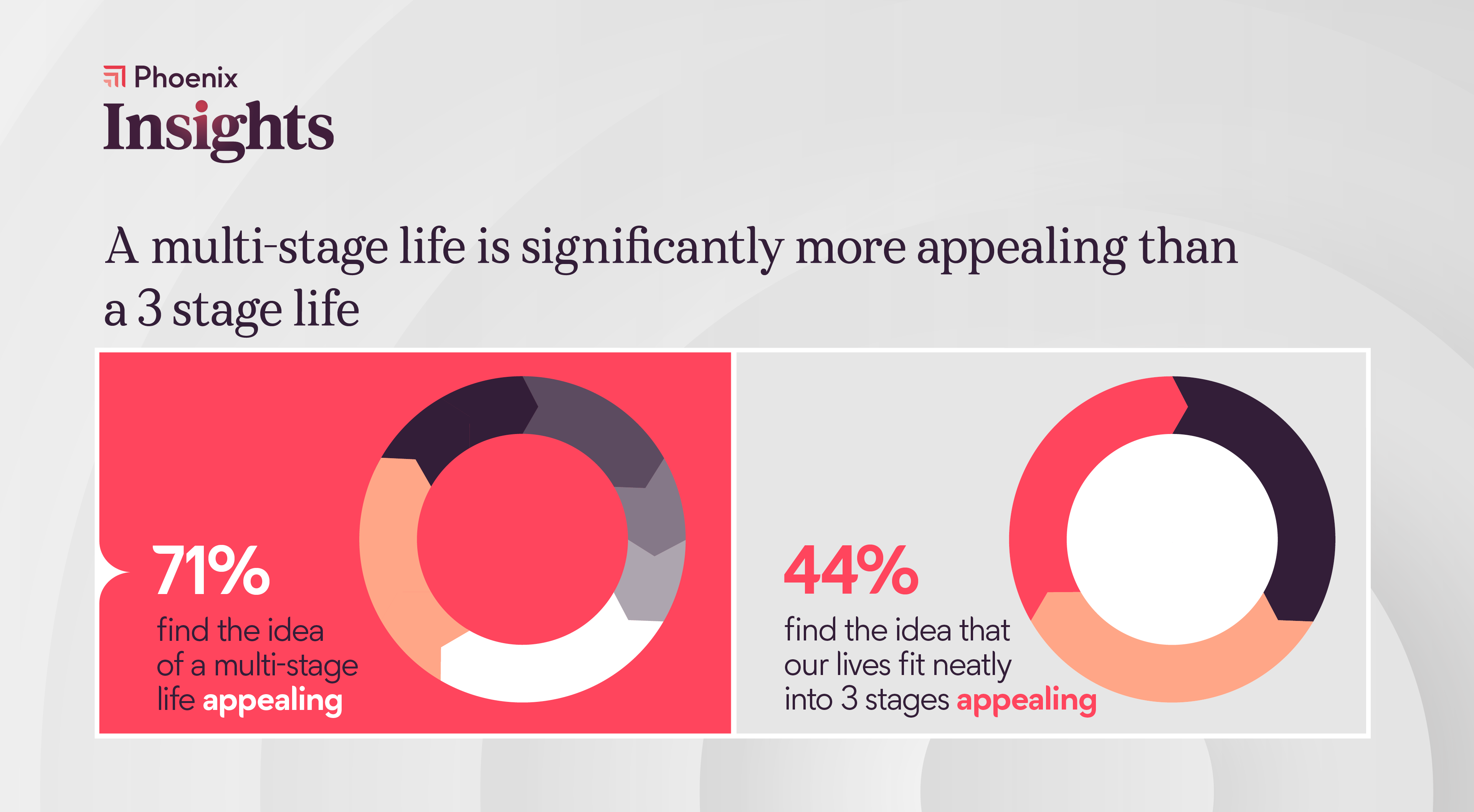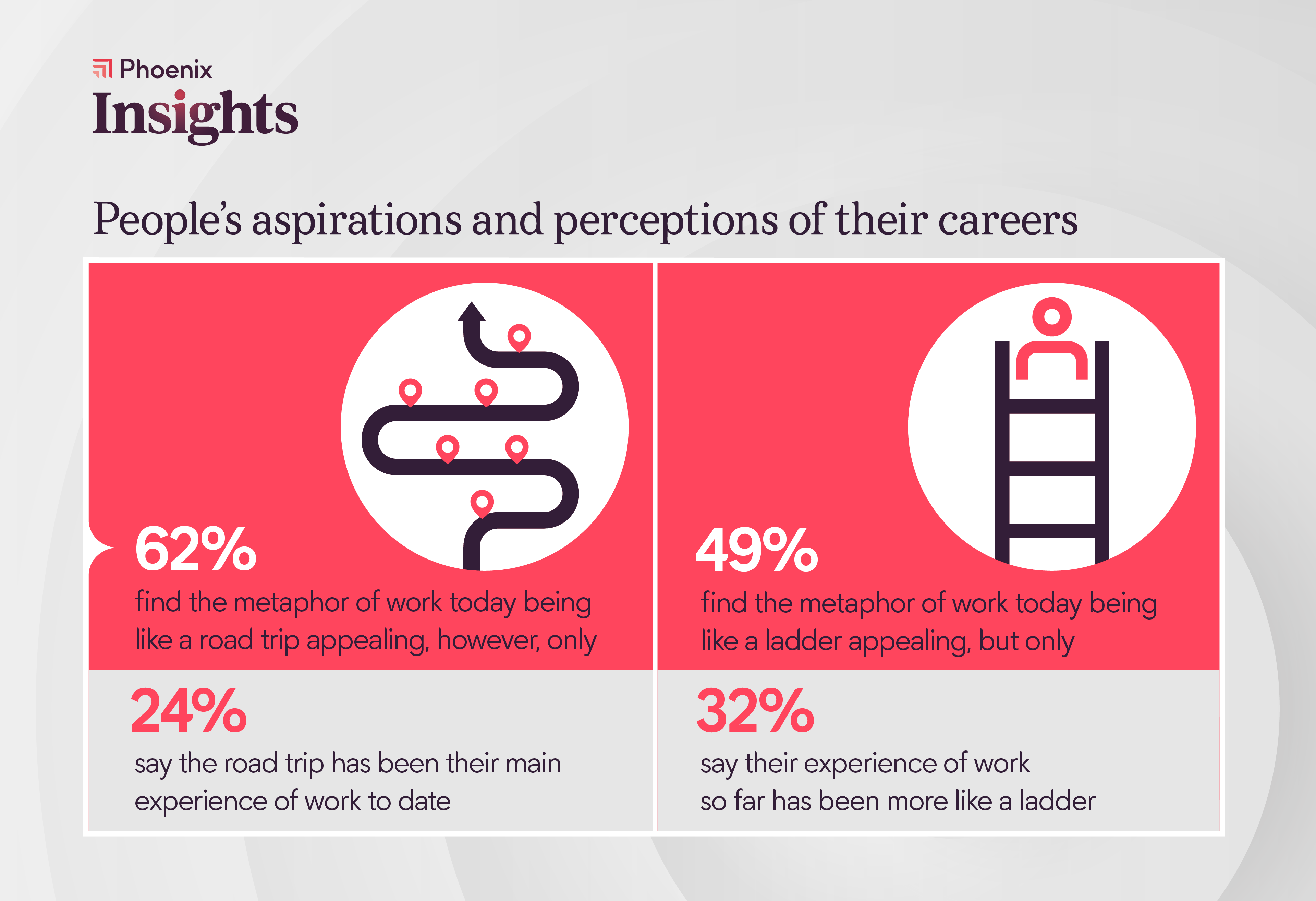Whilst the metaphor of work being like a road trip had the most appeal, 1 in 3 (32%) say their experience has been more linear, like a ladder, compared to 1 in 4 (24%) who said their experience has been more like a road trip.
Whilst this research shows that people find different frameworks for how we can live our lives and work appealing, it also highlights a significant gap between what people find appealing and their experience to date.
Throughout the examples we explored, women and people under 55, were most likely to be living their lives in less structured and linear ways, compared to men and people aged 55 and over, highlighting the importance of recognising different starting points and preferences.
Familiarity vs flexibility?
A lot of the appeal of ladder-like careers was in their familiarity and the reassurance of a ladder providing clear ways to progress and be rewarded. People who found the ladder metaphor appealing said things like "It is the way I have always worked. It may not be the best way but it has worked for me" and "it describes exactly how to progress in work and thrive as a career". A number of the reasons given for why the ladder metaphor appealed to people, for example "the idea of gaining skills and experience leading to higher roles is a good one", reveal assumptions about non-linear careers.
The appeal of careers being more like a road trip was around having the flexibility and control to make changes, and the opportunity to develop new skills and in different directions. “It's probably the most accurate and suggests that you have agency of the direction and decisions you take” and “Because I would be able to experience new things”.
This research shows some of the ways that people can and are reframing their expectations of life’s traditional structure and milestones. But it also highlights that there is a lot to do to enable more flexible lives and help people to navigate them smoothly and safely.
Change is needed
Many individuals will need to plan differently throughout their careers – from setting directions and speed, to managing detours and bumps in the road, and deciding if and when they pull over to take a break.
In Careers advice for longer lives we found that 40% of working adults said they had done nothing in relation to their career in the last 6 months, rising to 48% of people aged 45-54. For people to survive and thrive in work over what could increasingly be 50+ year careers, then this number needs to dramatically decrease.
Employer approaches to recruitment need to change, including eliminating the career-break penalty for people returning to work after what might be several periods away, as well as better recognition of transferable skills, which could help people move more seamlessly across sectors. Learning and development approaches also need to adapt, alongside employee benefits - from parental and carer’s leave to pensions and well-being support. Funding and services that help people upskill and retrain, or provide a safety-net through periods when people aren’t working, all also need to evolve. These societal changes are explored further in the blog Planning for multiple careers.
At Phoenix Group we are working with Amazing If to help colleagues develop the mindset and skillset for their ‘squiggly careers’. They are also one of our partners in the ‘Careers can change’ campaign, which we launched last year, bringing together experts and partners who are all dedicated to inspiring and supporting people to make successful changes to their careers. Find out more about the campaign at Careers Can Change.














